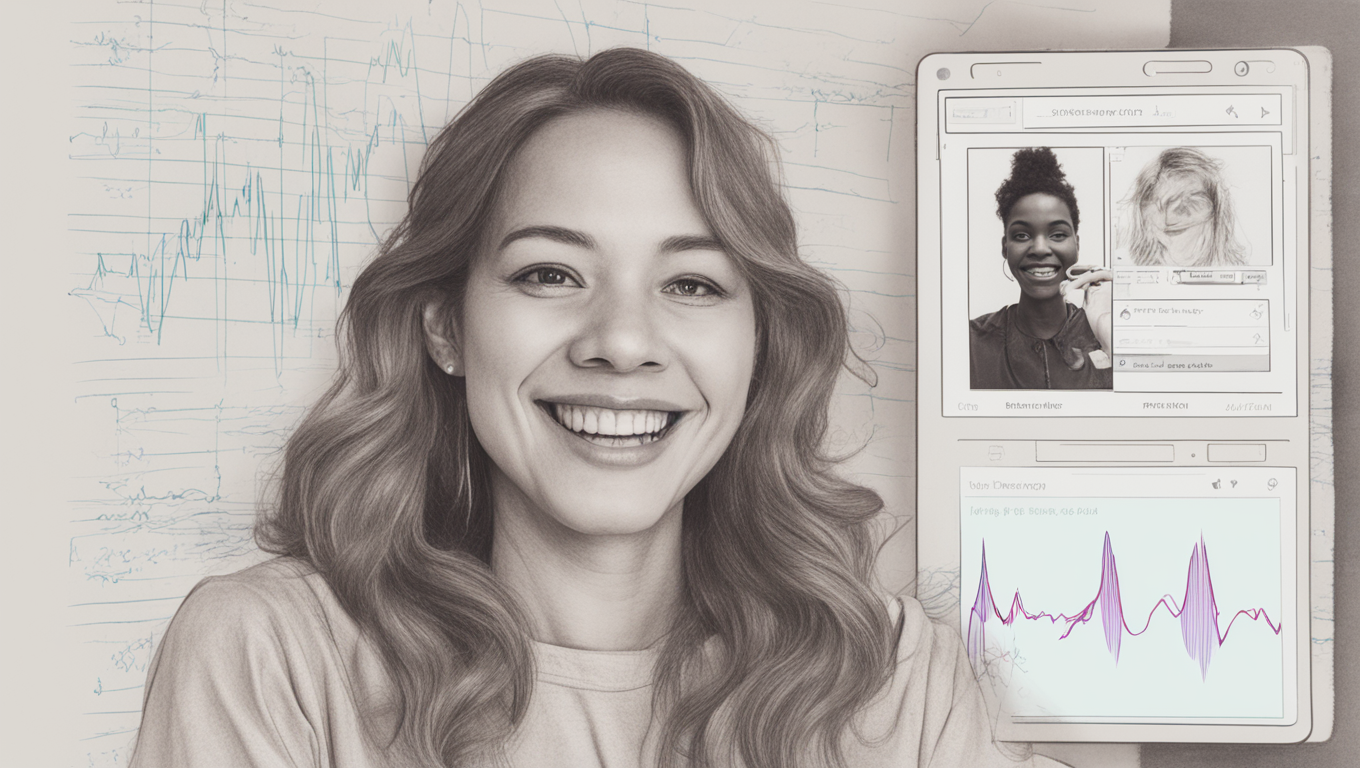In a groundbreaking development in the field of artificial intelligence, an AI app has been created that can restore lost voices for millions of people. One of the individuals who has benefited from this technology is Alexis “Lexi” Bogan, a 21-year-old who lost her voice after undergoing surgery to remove a tumor near her brain. Before the surgery, Lexi had a vibrant voice and loved singing and communicating with others. However, the procedure resulted in difficulty swallowing and impaired speech, leaving Lexi struggling to express herself.
But now, thanks to OpenAI’s new Voice Engine, Lexi has been able to regain her voice, albeit in a synthetic form. Using a 15-second recording of her teenage voice, the AI app can generate a voice clone that sounds remarkably like Lexi. By typing words or sentences into her phone, she can have the app read them aloud, allowing her to communicate effectively once again.
This breakthrough technology, however, is not without its concerns. The rapid advancement of AI voice-cloning technology has raised worries about its potential misuse. Deepfake robocalls mimicking political figures and generating fake audio clips are just some of the examples that have sparked concerns about the ethical implications of the technology.
But Lexi’s case, along with the work of a team of doctors at Rhode Island’s Lifespan hospital group, demonstrates the potential benefits of AI voice restoration. The technology holds promise for millions of individuals who have lost their voices due to strokes, throat cancer, or neurogenerative diseases. While the risks shouldn’t be overlooked, the ability to restore a person’s true voice can have a significant positive impact on their quality of life.
Dr. Rohaid Ali, a neurosurgery resident at Brown University’s medical school and Rhode Island Hospital, emphasized the importance of balancing the risks with the potential social good. “We’re able to help give Lexi back her true voice, and she’s able to speak in terms that are the most true to herself,” he said.
The team of doctors caught the attention of OpenAI due to their previous research project using AI chatbots to simplify medical consent forms. Recognizing the potential medical applications of their AI voice generator, OpenAI partnered with the doctors for Lexi’s case, hoping to pave the way for future developments in the field.
To train the AI system, Lexi provided a 15-second clip of her voice from a high school cooking demonstration video. Despite the brevity of the sample, the AI system was able to create a voice clone that closely resembled Lexi’s original voice. The quality of the clone impressed everyone involved, and Lexi’s mother, Pamela Bogan, expressed her joy at hearing her daughter’s voice once more.
Since being equipped with the app, Lexi has put it to practical use in various aspects of her life. Whether it’s ordering coffee at Starbucks or reconnecting with her father, the app has made communication easier for Lexi. Her doctors have also started cloning the voices of other willing patients, with the aim of bringing the technology to hospitals worldwide.
OpenAI, however, is approaching the expansion of Voice Engine cautiously. The company wants to ensure that voice cloning is done with ongoing consent and avoids political contexts. They are also developing a secure “voice authentication” tool so that users can replicate only their own voices. High-trust relationships with medical providers may be necessary to provide more access to the technology for patients like Lexi, who have experienced sudden loss of speech capabilities.
Lexi’s determination to think about how the technology could help others with similar speech impediments has impressed her doctors. She has become an inspiration for the team, actively providing feedback to assist in the improvement of the technology. Looking ahead, Lexi envisions an AI voice engine that can integrate with the human body or provide real-time translation.
For now, Lexi is grateful to have something that helps her find her voice again, despite not having fully recovered her original voice. As this groundbreaking technology continues to evolve, millions of individuals like Lexi may be able to rediscover their voices and regain the ability to express themselves fully once more.





Use the share button below if you liked it.